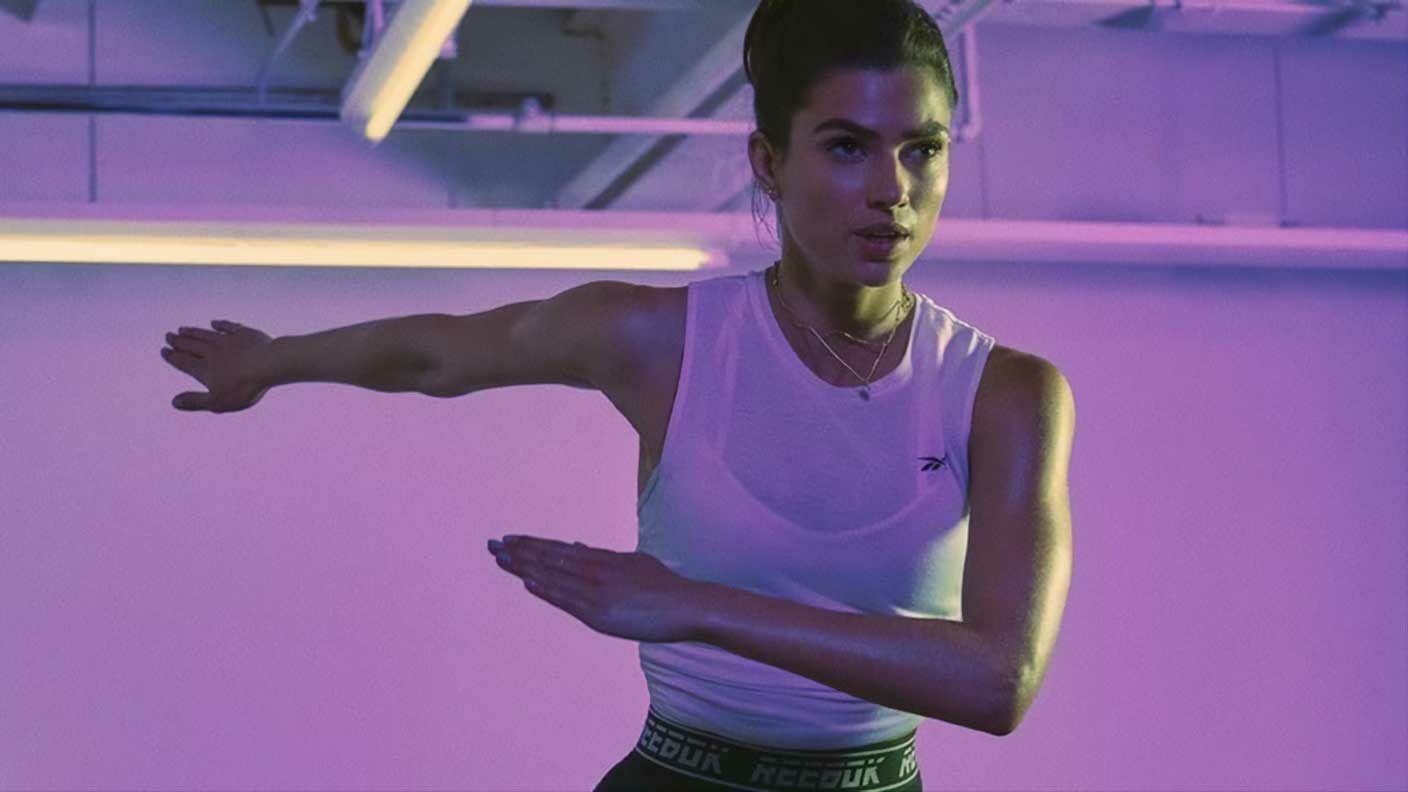Australian Scientist Professor Rob Newton has spent years testing exercise prescriptions on the chronically ill and believes that exercise, not bed rest, is the answer. He explains the role of exercise in countering colds, cancer and COVID-19, and shares learnings from his time as an elite sports consultant for the Chicago Bulls.
You’ve worked with everyone from chronically ill cancer patients to elite athletes. Do you have one piece of advice that applies to everyone?
Never give up! You have to stay physically active, on most if not every day. Even if you’re extremely unwell, if you adopt a rest attitude you will only have a worse outcome. There is always some exercise you can do. We currently have patients with advanced cancer – metastatic lesions in their bone, but we simply focus on exercising the bits that aren’t broken. For them to just sit on the couch, they will only die faster.
So the idea of people who are sick needing nothing but rest and recuperation is a misconception?
With any chronic disease, injury, or illness, adopting a total rest strategy is counter-productive. It will only make your condition worse. The vast majority of the population is good to go and do some form of exercise each day. The key factors to consider are what is the mode, the dosage in terms of intensity and volume, and any contraindications to be accommodated.
“You have to stay physically active, on most if not every day. Even if you’re extremely unwell, if you adopt a rest attitude you will only have a worse outcome.”
You believe the science around exercise dosage is where research is lacking. What have you found from researching how different exercise prescriptions can treat various ailments?
We know that physical activity is essential. We’re now exploring how exercise is best prescribed to treat a whole range of chronic diseases. For example, if someone has type two diabetes we prescribe lifting weights, because increasing muscle mass is particularly effective for curing diabetes, when nothing much else works. My particular area of interest is cancer. At the moment, we know exercise helps manage cancer, but we don’t quite know how it works and we don’t know enough about the optimal dosage.
Is the aim to create a magic exercise pill that replaces the need to exercise?
People keep talking about a drug that will mimic the effects of exercise, but it’s not possible. We are centuries off something like that – simply because our bodies are too complex, too interactive. You mess with one part and it messes up everything else. And that’s typical for most pharmaceutical drugs, they target a particular problem, but then they cause all sorts of other side effects because they disrupt other pathways and systems. Exercise doesn’t do that. It impacts in a generally positive way across all systems of the body.
“Pharmaceutical drugs target a particular problem, but then they cause all sorts of other side effects. Exercise doesn’t do that.”
Your research explores how those suffering from chronic illness can benefit from a highly-tailored exercise prescription. Do healthy people need a highly-tailored prescription also?
Our greatest problem is that two-thirds of the population is practically sedentary. So it would be good if more people did anything. Some is better than none. And more is better than a little. The key is variety. So rather than focusing on a highly-tailored prescribed program, the better recommendation is that healthy people do a wide variety of strength training, aerobic training, and flexibility training. A focus on functional capacity training. As a species, that’s what we’re designed to do – we have to run fast, but then we have to walk long distances, we have to carry heavy things, but then we have to be flexible enough to be agile. It sounds like a scattergun approach but that’s what’s good for the body.
Is a variety-packed exercise prescription what will help you resist the common cold or even a disease such as COVID-19?
Being physically active provides protection against non-communicable as well as infection diseases. People who are not physically active have low muscle mass and a higher fat mass, a hormonal imbalance which compromises their immune system, and their body is in this continual low level inflammatory state. We all get bombarded with pathogens every day – every time we eat any food, any time we breathe, any time we touch a surface. Most of the time the body just deals with it and destroys it. The problem is if you are sedentary and your immune system is compromised because of that, then you’re more likely to get colds and flu and you’re more likely to have more serious effects from these illnesses. And it’s the same for COVID-19. This is being well demonstrated in the U.S. in particular, where overweight men with type 2 diabetes or other lifestyle diseases are at a much higher risk of having more severe outcomes from the disease.
“If you are sedentary and your immune system is compromised because of that, then you’re more likely to get colds and flu and you’re more likely to have more serious effects from these illnesses.”
Many more people will die this year of heart disease, diabetes, sarcopenia, osteoporosis, you name it …. than are going to die of COVID-19. I know it’s a critical pandemic, but the reality is that all of these chronic diseases don’t care, they will continue to march on, and if nothing else, they will accelerate. That’s why we’re doing a lot of work at the moment to try and keep people physically active under the COVID-19 restrictions. You have to be physically active on most, if not every day. It’s in our underlying biology, we can’t fly in the face of that.
Your focus is on using exercise to treat cancer, what are your thoughts about how exercise might prevent cancer?
I’ve got to be honest, the evidence is not huge at the moment. It is strongest for colon cancer, showing that physically active people have a lower risk, but it varies from study to study. Breast cancer is one of the major cancers in the world and exercise has a strong protective effect. But that’s probably related to the fact that people who are more physically active have a more favorable body composition. Breast cancer, and prostate cancer, are hormone-driven, so women who are physically inactive and have higher estrogen levels will find estrogen-responsive breast cancers are much more likely to develop. In men, testosterone drives cancer, and those who are physically inactive still produce testosterone but their muscle receptors don’t pick it up. This means they have more testosterone hitting the prostate cancer cells so it’s more likely to develop and be more aggressive. In terms of lung cancer, we know that when you exercise you breathe harder so you expel more carcinogens but also your immune system is way more effective. Then again, there’s evidence that those who train outdoors in polluted cities have a higher incidence of lung cancer. It really is hard to get definitive answers because there are so many factors to consider. With bowel cancer, the mechanism is pretty clear. Those people who are physically active have a faster transit time through their bowel, in other words, they are less likely to be constipated. So their internal bowel is less exposed to carcinogens.
Basically, being sedentary greatly increases your risk of getting many types of cancer.
You haven’t always been working with the chronically ill. Tell us about your time working with high-profile professional sports teams.
I started in elite sport back in the 1980s. I was working with Australian Olympic swimmers, and then I had stints with the Australia Rugby Union, the Wallabies. In the U.S. I was based at Penn State University where I had a lot to do with collegiate sport. I was a consultant to U.S. Ski and Snowboard and a Nike consultant for three years, but most of my work in the U.S. was with the NBA. I was a consultant to the Chicago Bulls for five years, the New Jersey Nets, and Miami Heat. My time with the Chicago Bulls was a pretty unique experience. I was there when players like Luc Longley and Scottie Pippen were there, but my focus was on the science and my contact with the athletes was limited. I would evaluate what they were doing, assessing the athletes with what we call the performance diagnosis process. Based on this, I would make recommendations to the strength and conditioning staff and coaching staff as to what changes they could make to their programs.
So having worked with everyone from the chronically ill to the fittest athletes on the planet, do you have one favorite ‘go-to’ exercise?
I would say burpees but everyone would hate me for it. Don’t write that down, because no one likes burpees! Honestly, there isn’t really just one exercise. Variety is the key. If you want to continue to get better, then your training has to continue to vary.
Author Les Mills
FOR A FITTER PLANET
We’re on a mission to create a fitter planet. This doesn’t mean making people work out. It means helping people fall in love with fitness so that they want to work out.

